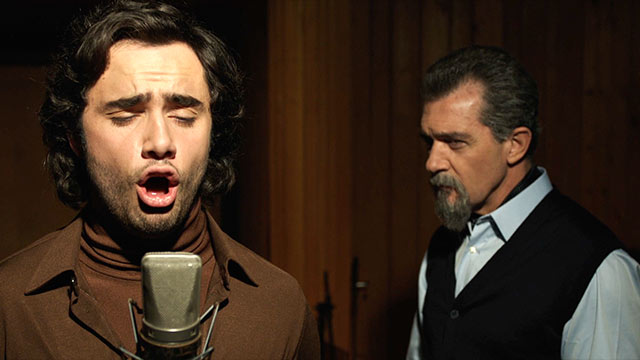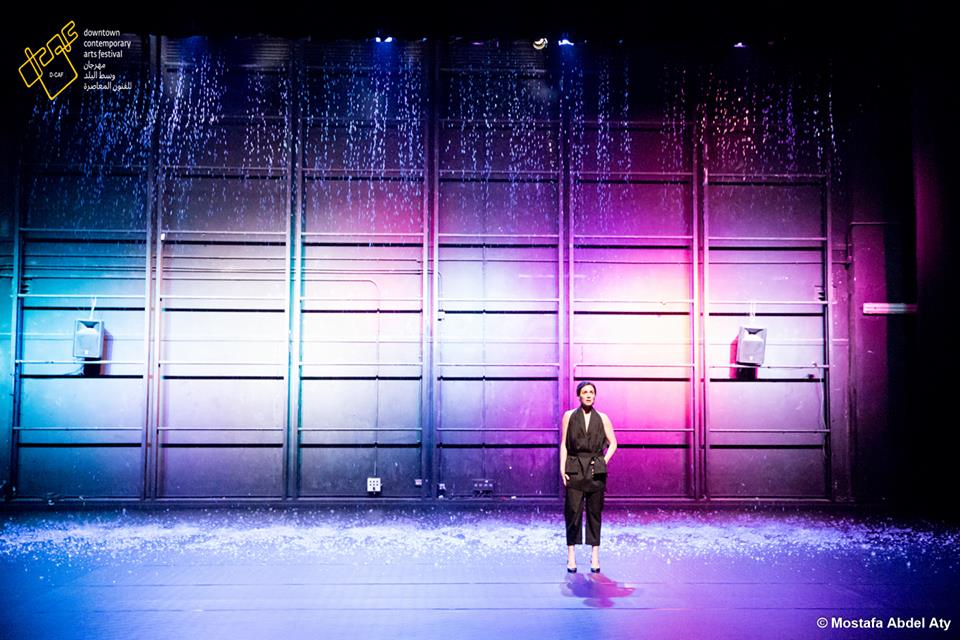Glossing over Bocelli in The Music of Silence
By Malak Nour
For the month of April, Zamalek Cinema has offered special screenings of director Michael Bradford’s The Music of Silence; a film about the life of renowned Italian singer and songwriter Andrea Bocelli that’s based on “The Music of Silence: A Memoir,” a semi-autobiographical novel of his authoring.
Starring Tony Sebastian in the role of Bocelli, the film takes us through the different stages of the Italian singer’s life.
From the moment he was born with poor eyesight, the shocking development of his condition into blindness, his near giving up on his dream of signing, to the moment he’s on stage in front of thousands of enchanted audiences and fans, finally making his long-wished-for dream come true.
Based on the true story of talent, strong will, resilience, and how they got the renowned star to overcome his disability, the film is a sentimental one that’s meant to touch the hearts of audiences as well as Bocelli’s many fans.
It also featured some brilliant signing by Bocelli, and a brief guest appearance by him; another thing that’d sure thrill his fans.
However, despite its attempt at an emotional reaction from the audience, The Music of Silence was barely memorable.
The cast’s performance seemed to be almost suffocated by the plot-drivenness of the film, the screenplay lacked both depth and intensity, and the cinematography failed to add dimension to the film’s, rare, peak moments.
The various elements making up the film fell short when it came to creating a genuine connection between the audience and the plot’s events and characters, settling for the mediocre rather than the awe-inspiring.
The filmmakers were so keen on including as many moments from Bocelli’s life as possible in the film that it ended up lacking depth.
It was the case that the audience got to see the many different stages in the Italian singer’s life – as a baby, at school, in university, at work, married – but they never really got to see him as a person, or understand the subjectivity of his experience with disability.
Perhaps the documentarylike approach the film has taken could’ve worked if the story being told was that of someone else, but with a famous figure like Bocelli, audiences are probably already familiar with the fact that he overcame his blindness and managed to be the star that he is.
Accordingly, establishing a strong emotional connection between the audience and the film’s protagonist should have been a priority given the already existing familiarity of the audience with the main highlights of his life.
What could’ve made the film really special was familiarizing the audience with the inner life of Bocelli. How his experience with blindness shaped him, how it brought him down, then back up again.
All of this, not in the cliched, superficial sense of “yes, I can” type of spirit, but in a real, raw sense. One that would have allowed the audience to see the star as a human being with his own set of complex experiences.
However, in the case of The Music of the Silence, the plot’s advancement ended up dominating the film, leaving no space for genuine character building or development, which, ironically, made the film seem like the story of just about any person who overcame a disability with talent and passion.
The uniqueness of Bocelli’s experience with his predicament was very downplayed, limited to just a couple of cliched expressions of his determination, people’s exaggerated fascination by his voice, and Sebastian’s on-screen resemblance to him.
There were several moments when we got to see Bocelli’s desperation, and how he almost gave up on his dream, but despite the potential of these moments, they ended up, like most of the film, falling flat, arousing no genuine emotion.
The Music of Silence, though not a wholly bad film, failed to leave to a memorable impact, as it glossed over the specifics of Bocelli’s experiences for the more general outlines of his life, keeping audiences away from the possibility of connecting to him on a deeper, more meaningful level.




